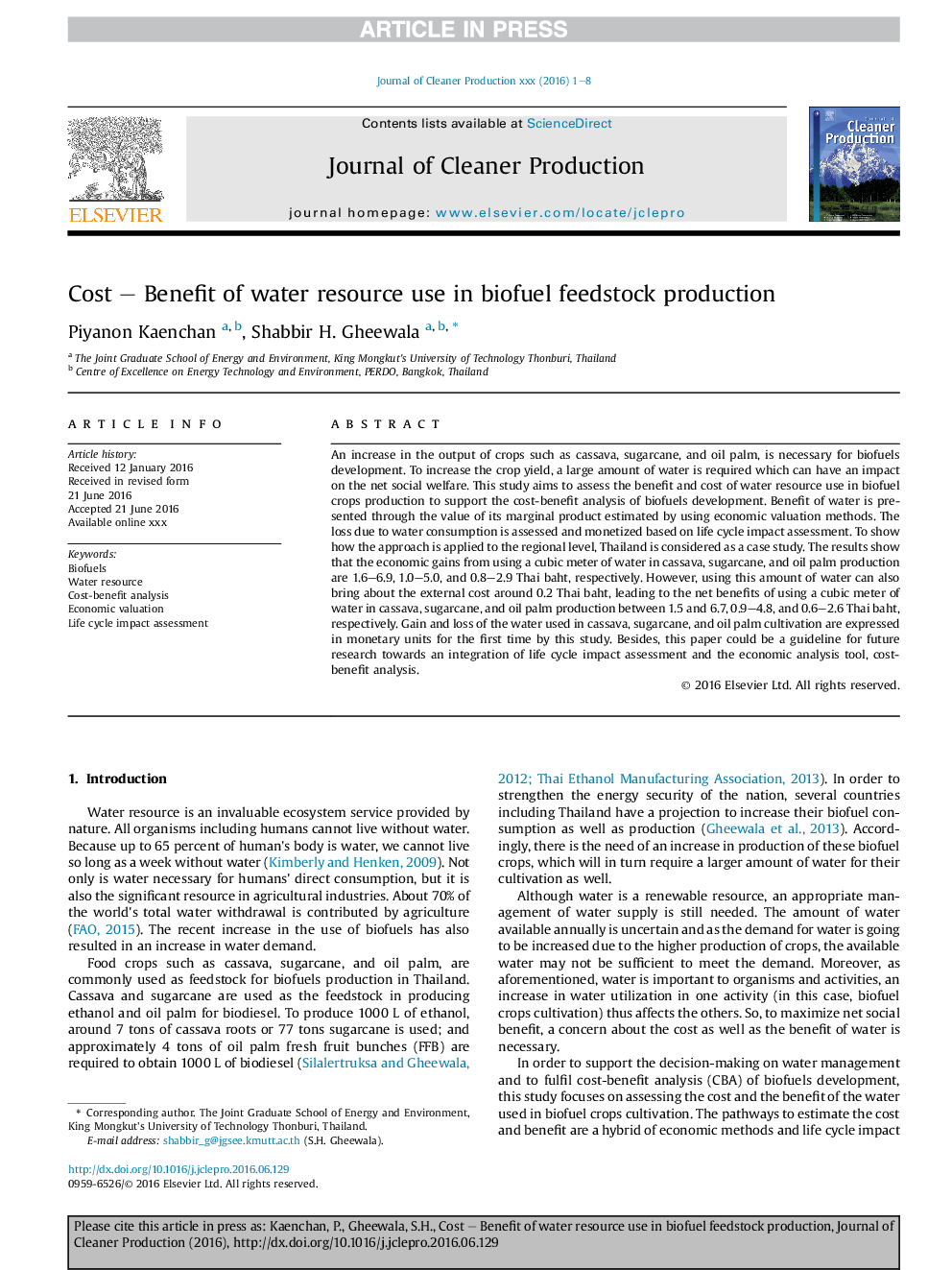| Article ID | Journal | Published Year | Pages | File Type |
|---|---|---|---|---|
| 5481642 | Journal of Cleaner Production | 2017 | 8 Pages |
Abstract
An increase in the output of crops such as cassava, sugarcane, and oil palm, is necessary for biofuels development. To increase the crop yield, a large amount of water is required which can have an impact on the net social welfare. This study aims to assess the benefit and cost of water resource use in biofuel crops production to support the cost-benefit analysis of biofuels development. Benefit of water is presented through the value of its marginal product estimated by using economic valuation methods. The loss due to water consumption is assessed and monetized based on life cycle impact assessment. To show how the approach is applied to the regional level, Thailand is considered as a case study. The results show that the economic gains from using a cubic meter of water in cassava, sugarcane, and oil palm production are 1.6-6.9, 1.0-5.0, and 0.8-2.9 Thai baht, respectively. However, using this amount of water can also bring about the external cost around 0.2 Thai baht, leading to the net benefits of using a cubic meter of water in cassava, sugarcane, and oil palm production between 1.5 and 6.7, 0.9-4.8, and 0.6-2.6 Thai baht, respectively. Gain and loss of the water used in cassava, sugarcane, and oil palm cultivation are expressed in monetary units for the first time by this study. Besides, this paper could be a guideline for future research towards an integration of life cycle impact assessment and the economic analysis tool, cost-benefit analysis.
Related Topics
Physical Sciences and Engineering
Energy
Renewable Energy, Sustainability and the Environment
Authors
Piyanon Kaenchan, Shabbir H. Gheewala,
